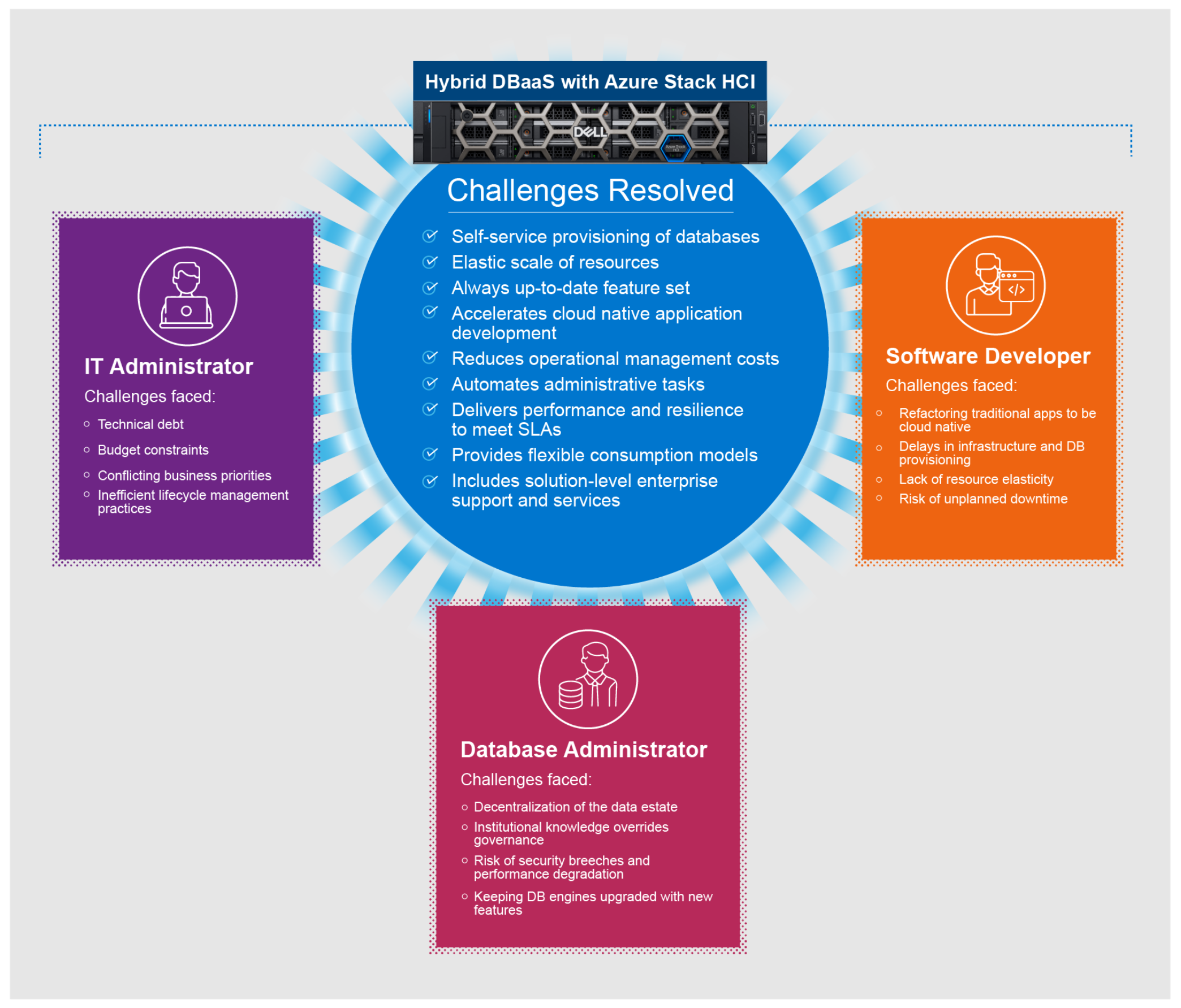Home > Integrated Products > Microsoft HCI Solutions from Dell Technologies > White Papers > Building a Hybrid Database-as-a-Service Platform with Azure Stack HCI > Solution overview
Solution overview
-
Note: This white paper may contain language from third-party content that is not under Dell Technologies’ control and is not consistent with current guidelines for Dell Technologies’ own content. When such third-party content is updated by the relevant third parties, this white paper will be revised accordingly.
To respond to the glut of database-management challenges, IT organizations must adopt a Database-as-a-Service (DBaaS) platform. A DBaaS platform enables the creation of modern, cloud-native applications that deliver exceptional customer value. Simultaneously, the platform must be prescriptive and optimized for DBA, IT administrator, and software developer productivity. Microsoft and Dell Technologies provide a tightly integrated, yet modular, solution architecture that:
- simplifies lifecycle management
- automates administrative tasks
- leverages Microsoft Azure platform services
- delivers resilience and performance to meet SLAs
Dell Integrated System for Microsoft Azure Stack HCI (Azure Stack HCI) establishes a robust foundation for the DBaaS platform. This system streamlines the Azure hybrid cloud experience across data centers and edge locations while simplifying on-premises operations and accelerating application development. It comes bundled with software-driven automation, full-stack life cycle management, flexible consumption models, and solution-level enterprise support and services expertise. Azure Arc-enabled services coupled with flexible node configurations also enable a DevOps-optimized ecosystem that delivers predictable workload outcomes.
Azure Kubernetes Service hybrid (AKS hybrid) deployed on Azure Stack HCI is an on-premises implementation of the popular Azure Kubernetes Service (AKS) orchestrator. AKS automates running containerized applications at scale which allows users to operate consistent cloud native applications anywhere. Azure Arc-enabled data services include Azure Arc-enabled SQL Managed Instance and Azure Arc-enabled PostgreSQL Hyperscale and operate on AKS hybrid workload clusters. The data services provide the self-provisioning, elasticity, and always current feature set required of a managed hybrid cloud database service.

Figure 1. Benefits of running DBaaS platform
